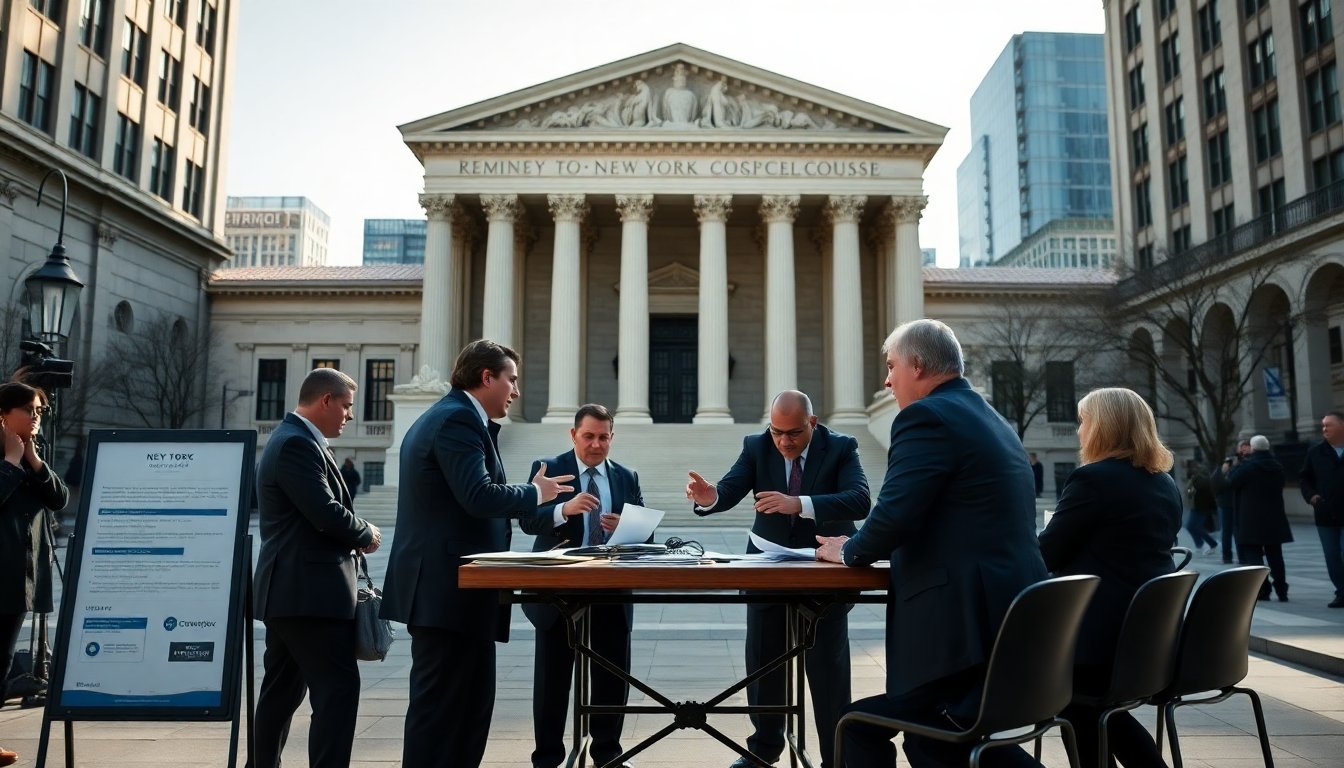Table of Contents
The case against New York Attorney General Letitia James has emerged as a significant legal battle that reflects broader themes of political conflict and justice. The allegations surrounding her conduct, particularly concerning potential mortgage fraud, highlight the extent to which the justice department is willing to go in pursuing charges against a high-profile political figure.
This situation has not only put James in the spotlight but has also raised questions about the motivations behind these legal actions.
With the backdrop of a politically charged environment, the investigation into James has revealed a narrative of alleged misconduct intertwined with accusations of political retribution.
As the legal proceedings unfold, it becomes clear that the implications of this case extend beyond the courtroom, impacting public perceptions of justice and accountability.
Understanding the allegations against Letitia James
At the heart of the controversy is the indictment of Letitia James, which accuses her of bank fraud and making misleading statements to financial institutions.
The crux of the allegations revolves around her acquisition of a property, which James purportedly misrepresented as a second home when, according to the indictment, it functioned as an investment rental.
The government claims that James misled financial institutions by asserting that the property was her second residence.
As a result, she allegedly benefitted from a significantly lower interest rate, potentially saving her thousands over the life of the mortgage. However, the complexities of federal mortgage guidelines come into play, raising questions about the validity of the claims against her.
Key findings from the investigation
Recent reports indicate that investigators found evidence that may undermine the accusations against James. Sources familiar with the investigation revealed that any financial gain she may have received from the property could amount to as little as $800.
This raises doubts about whether the prosecution can establish that her actions constituted intentional fraud as necessary for a successful conviction.
Additionally, the ambiguity surrounding federal regulations on occupancy complicates the prosecution’s case. The definitions of what constitutes occupancy are not clearly outlined, which may hinder the government’s ability to prove that James acted with fraudulent intent. Witness testimonies and conflicting accounts from various parties further complicate the narrative surrounding her actions.
The political implications of the case
The ramifications of this case extend beyond legal considerations and seep into the realm of politics. Critics argue that the motivations behind pursuing charges against James are rooted in a campaign of retribution against those who oppose former President Donald Trump. Following the indictment, the dismissal of U.S. Attorney Erik Siebert, who expressed reluctance to prosecute James, raises alarms about the integrity of the justice process.
Furthermore, the appointment of interim U.S. Attorney Lindsey Halligan, who has explicitly been tasked with prosecuting James, illustrates a potential politicization of the justice system. The fact that Halligan proceeded to indict James shortly after her appointment suggests an alarming trend where legal action may be influenced by political agendas.
James’s defense and the road ahead
In light of the allegations, Letitia James has consistently maintained her innocence, denying any wrongdoing. As she prepares to appear in federal court, her legal team is likely to leverage the findings of the investigation that question the validity of the prosecution’s claims. The stakes are high, not just for James, but for the broader implications regarding how the justice system interacts with political figures.
The upcoming court proceedings will be critical in determining whether the prosecution can substantiate its allegations against James. If the case is perceived as lacking in merit, it could lead to significant public backlash against perceived overreach by the justice department, ultimately shaping conversations about fairness and accountability in the legal system.
Conclusion: A pivotal moment for justice and accountability
The unfolding case against Letitia James serves as a pivotal moment in understanding the intersection of law and politics. As the investigation continues and the legal proceedings approach, the implications of this case will resonate beyond the courtroom, influencing public perceptions of justice and the role of political motivations in legal actions. The careful examination of evidence and the integrity of the judicial process will be paramount in shaping the outcome of this high-profile legal battle.





